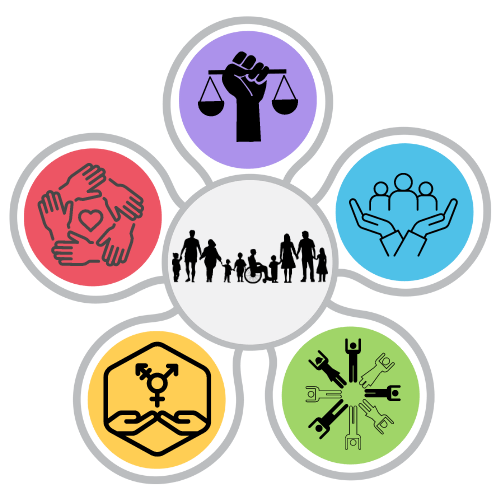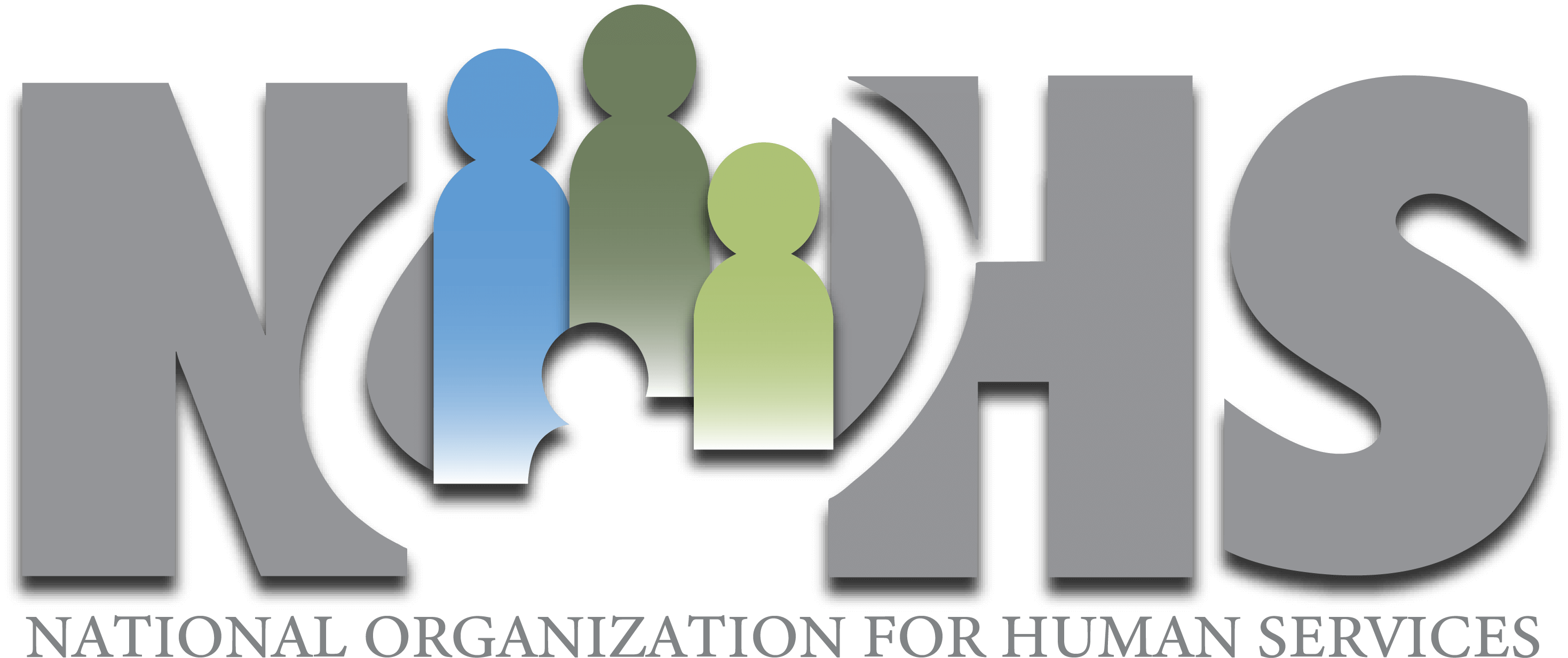JEDIB Statement

The National Organization for Human Services recognizes that our ethical responsibility as human service practitioners, professionals, educators, and students is to advocate for and actively work towards social change and social justice in our institutions and society at large. Our commitment extends to promoting principles of diversity, equity, inclusion, accessibility, and fostering a sense of belonging for all people within our national organization, in our human services work settings, and in our communities. We are committed to work that is anti-racist, anti-oppressive and that fosters healthy and equitable communities. We are further committed to advocating for policies within human service organizations and legislation at the local, state and national level that affirms all individuals, especially those that have been—and are—historically marginalized and oppressed. We strive to dismantle harmful systems of oppression, which have historically informed our own human services organizations, and to work towards affirming and anti-discriminatory policies and practice. We are equally dedicated to dismantling these inequitable systems within our own organization and in every human service organization we engage with.
Justice is our goal. We recognize the systemic injustices that perpetuate disparities and inequities in health and human service and all institutions. Through advocacy, education, and action, we seek to dismantle these barriers and promote fairness, dignity, and human rights for all.
Equity is fundamental to our mission. We are dedicated to identifying and eliminating barriers that prevent access to opportunities and resources for marginalized and underrepresented groups. Through our advocacy and initiatives, we seek to create pathways for equitable outcomes in human services and beyond.
Diversity is the cornerstone of our collective strength. We celebrate and embrace the richness of the human experience that comes from a diversity of backgrounds, histories, perspectives, and ways of understanding the world. We strive to create an environment where all voices are heard and inform our decision-making processes.
Inclusion is integral to our practice, teaching, organizing and advocacy. We are committed to cultivating a culture where everyone feels empowered to contribute fully and authentically. By fostering inclusive environments, we aim to harness the collective talents and potential of all individuals to drive innovation and positive change.
Belonging is essential to our community. We strive to create spaces where individuals feel safe, supported, affirmed and valued for their unique identities and contributions. By nurturing a sense of belonging, we strengthen our organization and foster resilience among those we serve.
Manifestation of our Values
- Code of Ethics:
Our Code of Ethics upholds principles of diversity, equity, inclusion, and accessibility, and the affirmation of people from various and intersectional identities. This code guides our interactions and work and ensures that we uphold the rights and dignity of all individuals without discrimination based on age, race, ethnicity, gender identity, sexual orientation, economic status, nation of origin, language and any other identity.
- Professional Development and Skills Enhancement:
We offer diverse professional development opportunities to equip our members with essential skills and content knowledge. These opportunities encompass areas such as ethical decision-making, assessment, crisis intervention, risk management, anti-oppression frameworks of practice that inform human services and more. Through these professional development opportunities, we aim to foster a skilled workforce that is not only proficient in technical aspects of human services but also deeply committed to practicing within frameworks that promote equity, inclusion, and liberation. Our approach ensures that professionals are prepared to engage with clients and communities in a manner that affirms their identities, experiences, and inherent dignity.
- Annual Conference Workshop Offerings:
Our conference features workshops and discussions on LGBTQIA+ rights, gender justice, anti-racism, trauma-informed frameworks of practice, and other social DEI and social justice topics. These sessions foster dialogue, collaboration, and knowledge-sharing among professionals committed to creating equitable and inclusive human services.
- Publications:
We actively seek-out and promote diverse perspectives and work that promotes the values of diversity, equity, inclusion, accessibility through our publications (our magazine, Human Services Today, and our scholarly journal, Journal of Human Services). We publish work from students, human service practitioners and professionals as well as scholars. We publish work from different practical, theoretical and methodological modalities.
- Policies and Procedures:
Our organizational policies prioritize inclusivity, affirmation, and equitable access for all groups. We continuously review and update our policies to ensure they reflect our commitment to diversity, equity, inclusion, and justice.
- Membership and Leadership Structure:
We strive to recruit and engage an organizational membership and a Board of Directors that is reflective of the diversity of our human experience paying close attention to recruiting and retaining individuals who identify as BIPOC, LGBTQIA+, people who identify as disabled or people with disabilities, Veterans, Women+, survivors and many other individuals representing the diversity of human experience in human services.
Through these initiatives and commitments, we strive to build a more equitable, inclusive, and just society where all individuals are empowered to thrive and contribute fully. Together, we can create lasting change and advance the principles of social justice in human services
